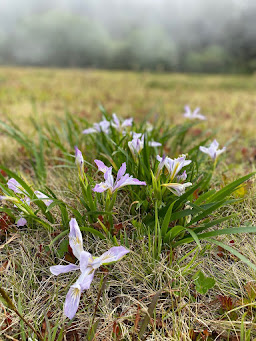.Turkey Day 2009.jpg)
On this official start of our annual year-end festival of overindulgence, the WORD offers perspectives on turkeys. As anyone in business, academe or who reads Dilbert knows, that’s an impossibly wide opening. Which I (uncharacteristically) decline to open very wide.
Here in northern Utah, gangs of wild turkeys pillage the neighborhood and tag our yards with, er, “turkey tags.” Turkeys are, apparently, just as dumb as the apocryphal story of turkeys drowning by looking up, open-beaked, at passing thunderstorms would indicate.
Yesterday, Sadie (the ADD brown Lab) sped off after a gang of turkeys, who ran like 3-foot velociraptors, all in single-file. The poor guys at the end of the pecking order wouldn’t pull out to pass even when Sadie caught up to them.
Hello!? You’re birds! Eventually they remembered that and flew into trees, but several forgot to hold on and fell off their limbs.

Our neighbor up the hill, Allyson, complained the other day about the turkeys cleaning out her bird feeders. I suggested the time-honored turkey repellent: A few cans of cranberry sauce (whole berry works better than the jelly).
Turkey on, all!
Ted TurkeyA Few WORDs on Turkeys• “I hate turkeys. If you stand in the meat section at the grocery store long enough, you start to get mad at turkeys. There's turkey ham, turkey bologna, turkey pastrami. Some one needs to tell the turkey, ‘Man, just be yourself.’”
—Mitch Hedberg  •
• “The best way to thaw a frozen turkey? Blow in its ear.”
—Johnny Carson • “No more turkey, but I’d like another helping of that bread he ate.’
—Anonymous • “Don’t assume you’re always going to be understood. I wrote in a column that one should put a cup of liquid in the cavity of a turkey when roasting it. Someone wrote me that ‘the turkey tasted great, but the plastic cup melted.’”
—Hints from Heloise• “Most turkeys taste better the day after; my mother’s tasted better the day before.”
—Rita Rudner• “A two-pound turkey and a fifty-pound cranberry—that’s Thanksgiving dinner at Three Mile Island.”
—Johnny Carson • “I love Thanksgiving turkey... It’s the only time in Los Angeles that you see natural breasts.”
—Arnold Schwarzenegger • “Dear Lord, I’ve been asked, nay commanded, to thank Thee for the Christmas turkey before us... a turkey which was no doubt a lively, intelligent bird... a social being... capable of actual affection... nuzzling its young with almost human-like compassion. Anyway, it’s dead and we’re gonna eat it.”
—Berke Breathed, Bloom CountyEditor’s Note: You want a stomach pump with that?
CALLING ALL UTAH STATE U. JCOM ALUMS: Happy Thanksgiving! Where are you? We're updating our alumni list. Please send your current position, title, contact info (including email), graduation year and any news to ted.pease@usu.edu. And check the Hard News Cafe for USU and Cache Valley news.
• • •
 .
..jpg)




















